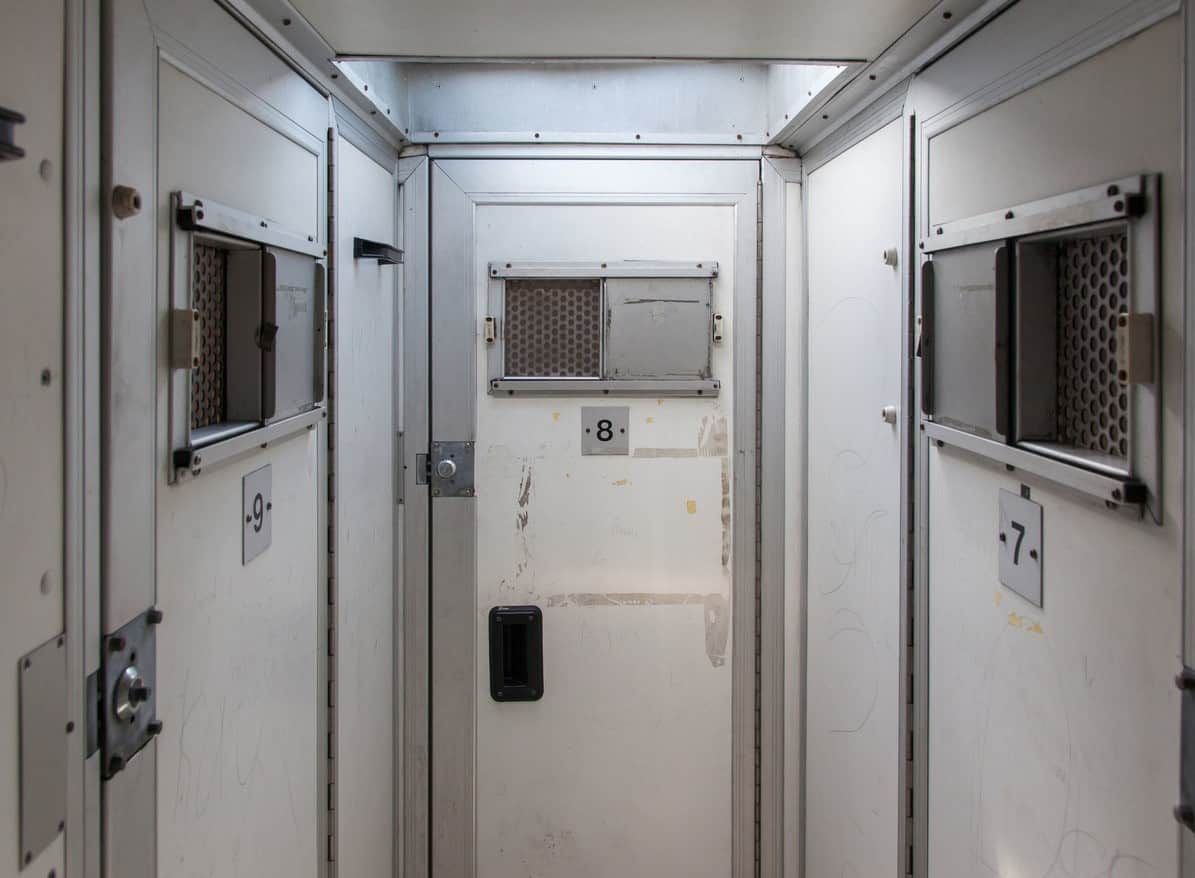Beat Your Denver DUI Charges with Effective Defense Strategies
July 17, 2024

Can You Be Arrested for Being a Peeping Tom in Colorado?
When Are Restraining Orders Issued In Colorado?
Posted by: Jacob E. Martinez
Category: Drug Trafficking
The biggest drug kingpin under the FBI’s watch is Joaquin “El Chapo” Guzman, former leader of the Sinaloa cartel. During his time as kingpin, he likely ran the world’s largest drug smuggling operation. Even though he is equally notorious for his ability to escape from prison, the United States is confident that they’ve now got him for good. Guzman currently faces 17 federal criminal counts, and if convicted, will be sentenced to life in prison.
Why no death penalty? When he was extradited, the United States assured Mexico that Guzman would not be subjected to the death penalty. That means, of course, that whichever prison he ends up in will have the difficult task of hanging on to a noted escape artist for what is likely to be decades.
What prisons are up for the job? One of the ones that is in the running is right here in Colorado.
Florence, Colorado is home to the country’s toughest prison. Formally called the United States Penitentiary Administrative Maximum Facility, the prison is nicknamed “Supermax.”
Supermax was opened in 1994 and can hold over 400 inmates. Each inmate is confined to a single cell for up to 23 hours a day. These cells function as “prisons within prisons” to provide the highest level of security.
Inmates have limited privileges and limited contact with the outside world. Many would – and have – called these conditions “inhumane,” and a number of lawsuits have been filed to address these concerns.
How bad is the prison? Federal prisoners have been quoted as saying that Guantanamo was “much better.”
Supermax has seen some of the toughest and most well-known criminals of our time, including: Dzhokhar Tsarnaev (the Boston Marathon Bomber), Ramzi Yosef (the man behind the 1993 World Trade Center bombing), Richard Ried (the “shoe bomber”), Terry Nichols (the Oklahoma City bomber), and Ted Kacynski (the “Unabomber”). Additionally, mob bosses, 9/11 conspirators, and serial-killing doctors are all serving decades in Supermax.
The former director of the Federal Bureau of Prisons has said that Supermax was built to hold the worst class of criminals who have “absolutely no concern for human life.”
You don’t have to be a mob boss or a world-famous bomber to end up in Supermax, though. Many former prisoners who came forward about the prison’s inhumane practices had never committed murder – they just had multiple offenses of assault or prison riots while they were serving time for other convictions.
How did this lead to them being imprisoned at Supermax? To answer that question, you have to understand how prison transfers work.

A few reasons prisoners may be transferred include:
In theory, only especially hardened criminals – or those who can’t seem to behave where they are – end up going to higher-security prisons. That being said, prison transfers are a reality of the criminal justice system. If you are charged with a crime, it is important to know what lies ahead if you are convicted and sentenced to spend time in jail.

Get convicted for trafficking and you can end up behind bars for decades. Over the course of your sentence, you may need to be transferred or moved around for many different reasons. This does not mean that you’re going to end up in Supermax, but since your behavior on the inside in part determines where you may be sent, it’s wise to remember what the consequences can be.
Let’s go back to your charges. It’s possible to stop the road to federal prison right there – your charges may be dropped, or a judge could rule that you are not guilty. If you would prefer to avoid a conviction and fight a life outside of prison, contact a Denver criminal defense lawyer – having experienced and serious representation will give you a better chance at staying out of prison and out of trouble.
About the Author:
Denver-based criminal defense and DUI attorney Jacob E. Martinez is a knowledgeable and experienced litigator with a record of success providing innovative solutions to clients facing criminal charges of any severity. Mr. Martinez has been designated a Top 100 Trial Lawyer by the National Trial Lawyers and has been awarded both the Avvo Client’s Choice Award and Avvo Top Attorney designation, evidencing his reputation for his exemplary criminal and DUI defense work and high moral standards.
Jury Trial - Not Guilty
Jury Trial - Not Guilty
Arapahoe 1st Degree Assault/Vehicular Assault
Jury Trial - Not Guilty
Denver Domestic Violence Assault Case
Jury Trial - Not Guilty
Denver D.V. Assault
Jury Trial - Not Guilty
Denver Careless Driving Resulting in Death
Jury Trial - Not Guilty
Jefferson County Felony Menacing
Jury Trial - Not Guilty
Adams County DUI
Jury Trial - Not Guilty
Jefferson County DUI
Jury Trial - Not Guilty
Jefferson County DUI
Jury Trial - Not Guilty
Jefferson Vehicular Assault/DUI
Jury Trial - Not Guilty
Jefferson County DUI
Jury Trial - Not Guilty
Boulder County DUI case
Jury Trial - Not Guilty
Arapahoe County DUI case
Jury Trial - Not Guilty
Adams County DUI case
Jury Trial - Not Guilty
Douglas County DUI case
Jury Trial - Not Guilty
Gilpin County DUI case
Dismissed
Broomfield County Probation Revocation case
Dismissal
Arapahoe County DUI case
Deferred Judgment
Arapahoe County DUI case
Deferred Judgment
Douglas County DUI case
Deferred Judgment
Larimer County DUI case
Deferred Judgment
Arapahoe County DUI Case
Deferred Judgment
Denver Felony Burglary Case
Deferred Judgment
Arapahoe County DUI case
Dismissed
Arapahoe County Protection Order Case
Dismissed
Golden Destruction of Property case
Dismissed
Jefferson County Protection Order case
Dismissed
Jefferson County Domestic Violence case
Dismissed and Sealed
Jefferson County DUI case
Dismissed
Denver Major Traffic Offense case
Dismissed and Sealed
Broomfield County Domestic Violence case
Dismissed
Summit County DUI Revocation
Dismissed
Denver DUI Revocation
Dismissed
Denver DUI Revocation
Dismissed
Denver DUI +.2 Involving Accident and Injury case
Dismissed
Denver DUI/Habitual Traffic Offender case
DISMISSAL
Denver District Aggravated Theft
Dismissed
Greenwood Village Assault case
Dismissal
Elbert County DUI
Dismissed
Arapahoe County Domestic Violence case
Dismissal
Jefferson County DUI
Dismissal
Denver Municipal Assault
Dismissed
Boulder County Domestic Violence Assault case
Dismissed
Wheat Ridge Assault case
Dismissed
Jefferson County DUI case, with 2+ Prior Convictions
Dismissed
Arapahoe County Domestic Violence case
Dismissed
Broomfield County Domestic Violence case
Dismissed
Arapahoe County Felony Theft case
Dismissed with No Charges Filed
Jefferson County Felony Theft case
Dismissed
Boulder County Felony Theft case
